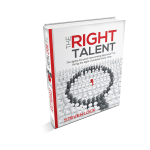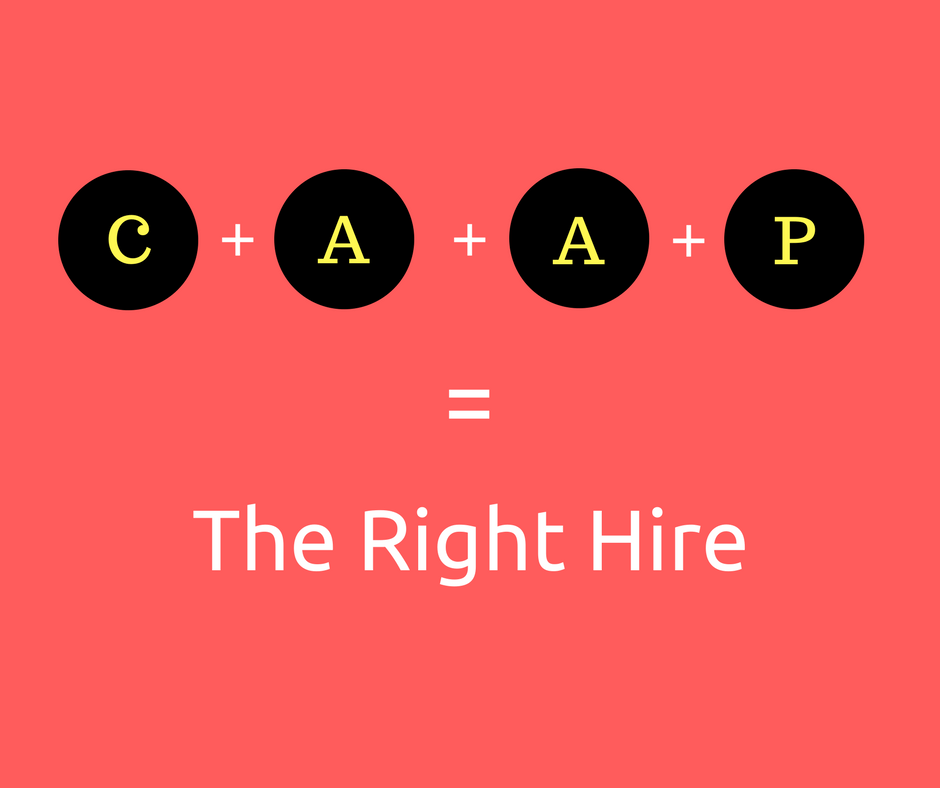Are you still hiring during this time of economic uncertainty?
If you are, then you know you have to really stretch your hiring dollar and ensure you hire the right people for your organisation. It’s clearly a buyer’s market these days.
As a hiring manager, there is a whole host of confusing advice out there about who you should be hiring and what you should not be hiring for.
there is a whole host of confusing advice out there about who you should be hiring and what you should not be hiring for
I’m sure you have heard some consultants and professional recruiters say that you should hire for Culture Fit. I’m sure you have also heard of calls to hire for Attitude (in fact there is an entire book written on why you should hire for attitude). Some have even said that you should just hire for Personality.
More recently some consulting professionals have come out to preach that you should look for people with potential. In other words, hire people with the Growth Mindset.
So who is right and who is wrong?
So who is right and who is wrong?
What exactly should you be hiring for?
Should you hire for Culture Fit? Or should you hire for Attitude?
What about hiring for Potential or Growth Mindset?
And why would you not hire for Personality?
What Would You Consider When Buying a New Home?
I’d like you to imagine with me for a moment.
You are contemplating buying a new home. What would you look for in your new home? What would you consider before putting down the deposit for your new home?
Would you consider the location?
What about the environment?
Accessibility to and from public transport?
Your new neighbours?
What about carpark facilities?
Would you also consider the growth potential of this new asset you’re about to purchase?
How about the built-in floor area and space?
The internal layout and built quality?
I bet that as a potential home buyer, you would probably consider most, if not all of the above! (and perhaps even more!)
Would you make your purchase decision simply based on just one of the above criteria – say, carpark facilities?
Hiring is like buying a new home
Hiring is just like buying a new home – an asset with the potential of future growth and appreciation in value. It is not a trivial matter that you base your decision to hire on just one criterion. For instance, you cannot simply base your hiring decision just on attitude alone. Similarly, you cannot base your hiring decision just on growth mindset alone.
Hiring is just like buying a new home – an asset with the potential of future growth and appreciation in value
In order to minimise your chances of hiring the wrong person, you will need to consider a combination of factors.
So what is the correct combination that will maximise your chances of hiring the right person for the job?
Here are four areas that I always consider when I hire someone.
This approach has worked wonders for me. It has helped me hire a regional team that achieved 0% attrition and almost 100% KPIs for 10 years straight.
This approach has worked wonders for me. It has helped me hire a regional team that achieved 0% attrition and almost 100% KPIs for 10 years straight
The secret to my success: The CAAP® Model
Culture
Culture refers to Cultural Fit. It is important to select a candidate who is able to fit in with the prevailing culture of the organization or team. Selecting a candidate with the incorrect cultural fit could potentially spell trouble for both the candidate and the organization or team.
Take for instance, the corporate culture at General Electric Co. (GE). GE is well-known for its intensely competitive culture. When Jack Welch was the CEO, he was known to have categorized the employees into three categories: the top 20%, the middle 70% and the bottom 10%. The bottom 10% is the result of a process known as “Forced Ranking”. The top 20% will be showered with praises and financial rewards. The middle 70% would be managed differently and given stretch goals. The bottom 10% will be purged from the organization. As a result of this practice of “bottom slicing”, it created an intensely competitive environment within GE.
Therefore for a new hire to be successful in this case, the candidate needs to be able to fit in and adapt to the highly competitive GE environment.
Attitude
In today’s highly competitive business landscape, candidates with the right cultural fit are no longer sufficient. The candidates should also possess the right work attitudes. For instance, a candidate with a positive attitude will not give up easily when faced with a challenge or a seemingly daunting task. Some examples of positive attitude include:
-
– Willingness to take on new challenges
– Willingness to take responsibility for things that go wrong
– Willingness to admit mistakes and learn from the mistakes
– Find ways to overcome obstacles
In contrast, bad attitude may include:
-
– Blaming others when things go wrong
– Criticising others behind their backs
– Self-centred
– Arrogant
Aptitude
Aptitude is the ability and capacity to learn. The aptitude to learn should not be confined to just learning new skills or knowledge. It includes the ability to connect with people; to establish strong relationships with co-workers and peers; and the ability to learn and function as a team.
People who possess the aptitude to learn are continually in a learning mode. They usually possess a high level of personal mastery. They are inquisitive and feel they are part of the team or organization.
Personality
Personality is important because it governs how a person behaves towards others and how the person reacts to others. It governs how a person works within a team, how he/she communicates with others, and how that person makes decisions and manages change.
Conclusion
So what am I saying? Am I saying that my approach is the right one for you?
If you thought so that way, you could not have been more wrong.
What I’m saying here is this: this CAAP(R) hiring approach has worked wonders for me. But it may not be suitable for you – because it all depends on your situation and your current organisational context. However you will not know if it will work for you until you give it a try.
If it works for you, great and continue using this approach for your hiring!
And I would love to hear from you why and how it has worked for you.
If it doesn’t work for you, then it simply means you have to continue looking for a formula that works for you – perhaps even tweaking the CAAP(R) model to suit your environment and context.
Whatever the outcome, the bottom-line is that in this age and time when the economy is so uncertain and the business landscape changing at break-neck speed; and when automation and robotics threaten to take away our jobs, you can’t afford to hire the wrong people for your organisation.
Finally, none of these will work for you if you’re not even clear about what you are looking for in your new hire in the first place.
If you would like to find out how you can apply the CAAP® hiring approach in your organisation to maximise your chances of hiring the right people, check out my book:

The Right Talent – The Agility-Focused Interviewing Approach™ to Hiring the Right Candidate Every Time.
Get your copy here: https://www.futurethink.com.sg/leadershipstylequestionnaire/the-right-talent-book/
Or if you prefer the e-version, it is now available on Amazon Kindle and Kobo.
About the Author
Steven Lock is the Founder of FutureTHINK! Training & Consultancy LLP. He is a Trainer, Author and a Leadership Coach. Steven brings with him 20 years of corporate experience.
Steven is passionate about helping organisations transform their teams into high performing teams. He does that by first helping organisations identify and hire the right people, and then training their leaders and managers on how to manage and lead their people to achieve peak performance consistently.
Steven is the developer of The CAAP® High Performance Model. The model focuses on Culture (cultural fit), Attitude, Aptitude and Personality dimensions of their employees and job candidates. It is a highly practical, effective and proven approach.
Steven believes that for organizations to be truly successful and perform at their highest levels, they need to shift their mind-sets to having the RIGHT people on-board – and not necessarily the best or the brightest.
Steven is the author of two books:
-
• “Hiring for Performance: The CAAP® Model to Hiring and Building High-Performance Teams.”
• “The Right Talent: The Agility-Focused Interviewing Approach™ to Hiring the Right Candidate Every Time.”
He is the developer of The Leadership STYLE Report™ that is based on Dr. Daniel Goleman’s research on leadership styles.
Steven has been interviewed twice on MediaCorp’s live radio show The Breakfast Club on 938FM, and has contributed numerous articles to Singapore Business Review, ST Recruit, SHRI Human Capital, LinkedIn and other publications.
His comment on Team Collaboration has been quoted in the Harvard Business Review OnPoint Magazine.
Steven is certified in MBTI® (Step I & II) & DiSC® Personality instruments.



